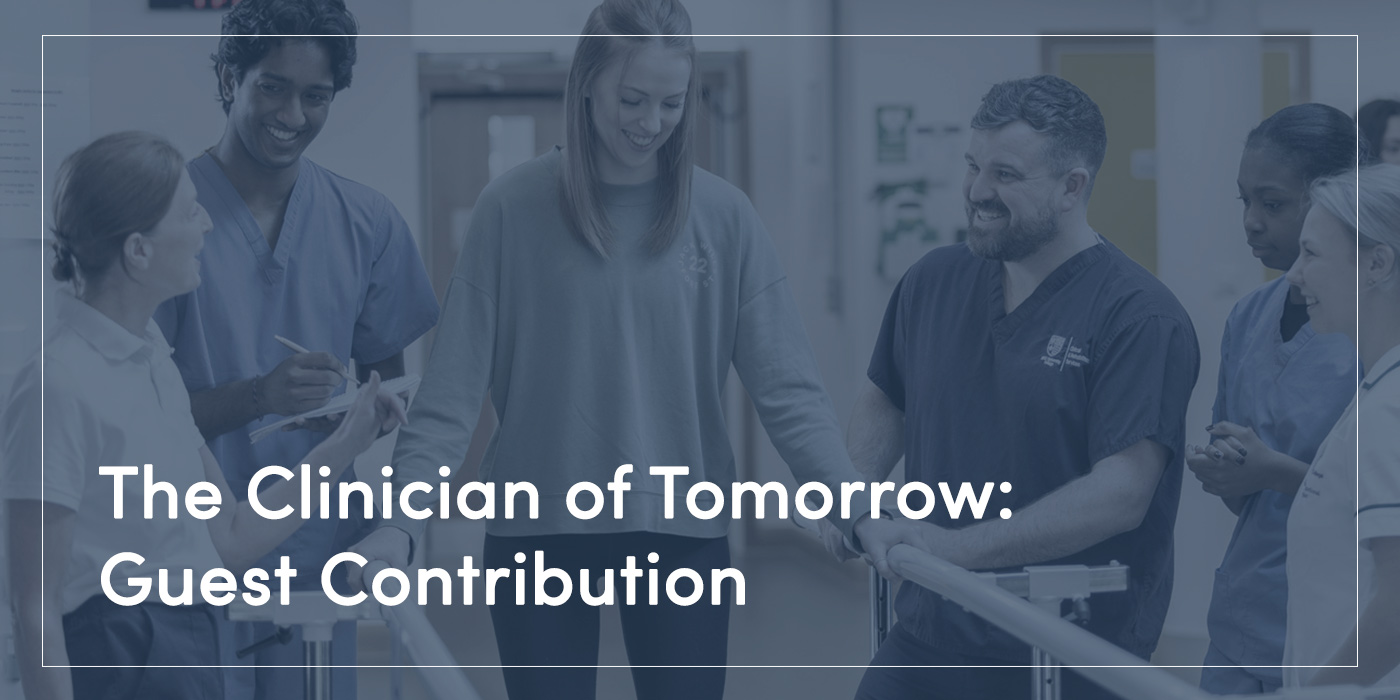The Clinician of Tomorrow – What Do They Look Like?

By Guest Contributor, Jack Chew
We are delighted to announce that our very first guest contributor to Clinical Insight is Jack Chew. Jack is a Physiotherapist, Managing Director of Chews Health and host of The Physio Matters Podcast – a monthly show which goes out to over 20,000 therapists. He shares his thoughts on what is required of tomorrow’s clinicians.
I received a few suggested titles and I loved the sound of this one. But I quickly realised that it would be written VERY differently depending on whether I shared my take on what they SHOULD look like rather than what they COULD look like. The classic ‘optimism v pessimism’ dilemma!
In general, I’m an optimist! Forever making the case for how we can raise the standards of clinical care and of course that care will be delivered by our ever evolving workforce including new clinicians. So a title revision; ‘The Clinician of tomorrow. What should they look like?’
They should be:
- Diverse
- Brave
- Adaptable
Diverse
Whilst I know there’s no need to take the title literally when it says ‘look like’ as in this instance of course it means ‘what will they be like/behave like/have the characteristics of’. But in the spirit of ‘what should they look like’ they should be somewhat representative of the communities which they serve. Not in some tokenistic way determined by spreadsheets, but because healthcare should be attracting talent from all backgrounds to maximise the cultural competence of departments, disciplines and professions.
However, when I suggest that diversity should be a sought after feature of tomorrows clinicians, I am not only referring to protected characteristics. They should represent a diversity of experience, background, opinion, profession and discipline.
Brave
I say this in full acceptance that I am deeply biased in favour of doing things differently. But I feel justified in suggesting that tomorrow’s clinicians should be brave because the status quo ain’t working.
Healthcare is a sector steeped in history and tradition and healthcare professionals are polite and agreeable. Is it any wonder that it takes some serious force to overcome inertia?
I’m an MSK nerd, and in my world every measure of health is going backwards, yet our patients are seen in side rooms or curtained boxes and receive treatment that is very similar to that which has at best failed to reverse said backward trend…
So if tomorrow’s clinicians fancy ‘making a difference’, they should be brave. They’ll need to be.
Adaptable
Considering the complex, multi-morbidity, poly-pharmacy status of society at large, and an information climate in which folk ask Facebook friends rather than a professional what they should do about a rash, here’s hoping that tomorrow’s clinicians aren’t having to endure today’s operational format.
If we continue to park clinicians in the aforementioned boxes with a plinth, a laptop and a list of 10-20 patients a day then I will revise this section from ‘adaptable’ to ‘superhuman-resilience’. But if we can avoid this recipe for burnout, the clinicians of tomorrow should be adaptable.
Adaptable enough to see patients:
- Face to face
- Online
- In groups
- In pairs
To reassure them with:
- Their words
- Their hands
- Their example
- Their use of environment
To spend some of their day:
- Training students
- Training peers
- Training AI
- Training school teachers
Working in:
- Leisure centres
- Work places
- Village halls
- Local parks
And whilst influencing:
- Operational procedures
- Service management
- Representation
- Policy
No pressure then…